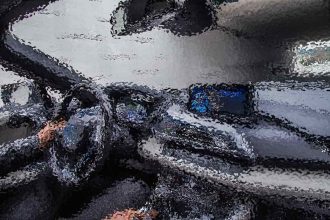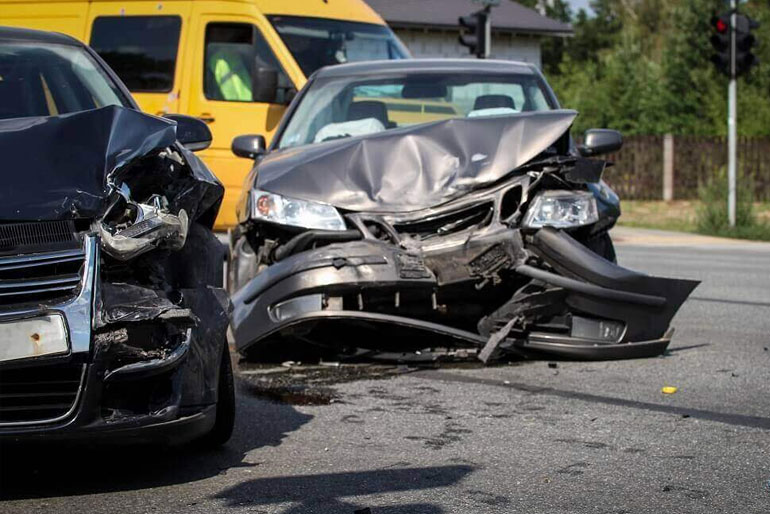Being in a crash can make your heart race and your mind spin. The good news is that Georgia law lays out clear steps to follow, and none of them require a law degree. Below is a straightforward, no‑jargon roadmap—about as long as an easy Sunday read—to help you stay calm, protect your health, and safeguard your rights after a wreck anywhere in the Peach State.
1. Put safety above everything
- Pull over carefully. If the vehicles can move, guide them to the shoulder or a parking lot. Turn on hazard lights so other drivers see you.
- Check on yourself and others. Bumps and bruises can hide behind adrenaline. Ask passengers how they feel.
- Call 911 right away. Even if injuries seem minor, emergency responders can spot hidden dangers, and the call itself creates an official record.
2. Call the police—and know why it matters
Georgia requires you to alert law enforcement if anyone is hurt, killed, or if the apparent property damage looks above $500. O.C.G.A. § 40‑6‑273 calls for “the quickest means of communication,” which usually means dialing 911. An officer’s report is the backbone of your insurance claim and any future lawsuit, so never skip this step.
3. Exchange the right information—politely
While waiting for officers, swap:
- Driver names and addresses
- Driver’s license numbers
- License‑plate numbers
- Insurance company names and policy numbers
Keep the chat friendly but brief. Avoid apologies or guesses about fault; they can be twisted later.
4. Capture the scene like a reporter
Use a phone (photo or video) to record:
- Damage to all vehicles, road signs, skid marks, and weather conditions
- Close‑ups of injuries or torn clothing
- Traffic lights or stop signs are involved
- The other driver’s registration and insurance card
If witnesses stopped, ask for their names and contacts. A short voice memo where they describe what they saw can be gold later.
5. See a doctor—even when you “feel fine”
Soft‑tissue injuries, concussions, and internal bleeding may not show up on the roadside. A same‑day urgent‑care visit:
- Protects your health
- Links injuries to the crash on record
- Prevents insurers from claiming you weren’t really hurt
Save every receipt, prescription, and doctor’s note in a folder—digital or paper.
6. Notify your insurer promptly
Most policies require “reasonable notice,” often within one or two days. A simple phone call opens the claim. Give the basics—time, place, vehicles—then wait to provide detailed statements until you understand the full picture. Georgia carriers must acknowledge a claim within 15 days and decide on payment within 30‑40 days.
7. Understand Georgia’s fault rules
- At‑fault state. The driver (or drivers) who caused the crash pays damages.
- Modified comparative negligence. You can collect money if you are 49 percent or less to blame; at 50 percent or more, you get nothing.
- Your share of any payout shrinks by your percentage of fault. If damages total $20,000 and you’re 10 percent responsible, you may recover $18,000.
8. Know the minimum insurance limits
Georgia motorists must carry at least $25,000 per injured person, $50,000 per crash, and $25,000 for property damage. Medical bills can outstrip those numbers quickly, so consider buying extra uninsured/underinsured coverage long before trouble finds you.
9. Respect every ticking deadline
| Action | Time limit |
|---|---|
| File a personal‑injury lawsuit | 2 years from crash date |
| File a property‑damage lawsuit | 4 years from crash date |
| Provide ante‑litem notice if a government vehicle is involved | 6 months |
Miss these windows, and the courthouse door could slam shut.
10. Common trip‑ups to avoid
- Leaving the scene early. Even a low‑speed bump can cross the $500 damage mark.
- Chatting too freely with adjusters. Recorded calls may be used against you.
- Posting on social media. A smiling photo may undermine an injury claim.
- Delaying medical care. Gaps in treatment make insurers suspicious.
- Accepting the first settlement. Quick offers often low‑ball future costs.
11. When professional help makes sense
Consider hiring a Georgia accident lawyer if:
- Injuries are serious or long‑term
- Fault is hotly contested
- A commercial truck, rideshare, or government vehicle is involved
- The insurance company drags its feet or blames you unfairly
Attorneys can gather expert opinions, negotiate higher settlements, and file suit before time runs out.
12. After the dust settles: paperwork you should keep
- Police report number and final copy
- All medical bills and treatment summaries
- Pay stubs proving lost wages
- Repair estimates and photos of damage
- Mileage logs for doctor visits
- Written correspondence with insurers
Neat records boost credibility and shorten claim processing.
13. FAQs in plain English
Do I have to report tiny fender‑benders?
If nobody is hurt and damage is clearly under $500, a report isn’t mandatory, but calling local police can still protect you.
What if the other driver has no insurance?
Your uninsured‑motorist coverage (if purchased) can stand in. Without it, you may sue the driver personally, but collecting can be tricky.
Can weather excuse bad driving?
No. Every driver must adjust speed to conditions. Skidding on a wet curve can still be negligence.
14. A quick checklist to stick on your visor
- Move cars off the road (if safe).
- Dial 911—ask for police and medical help.
- Swap insurance and driver info.
- Photograph everything.
- Gather witness contacts.
- Seek medical evaluation.
- Alert your insurer.
- Store all paperwork.
- Watch deadlines.
- Consider legal advice.
Print or screenshot this list—stress can fog memory.
15. Final thoughts
Crashes happen in seconds, but the ripple effects last months or years. By staying calm, documenting carefully, and following Georgia’s rules, you protect both your body and your bank account. Keep this guide handy, share it with friends and family, and drive safely out there.







